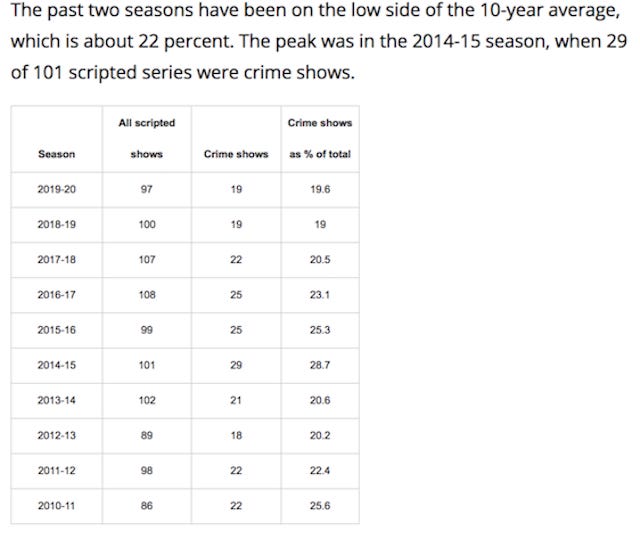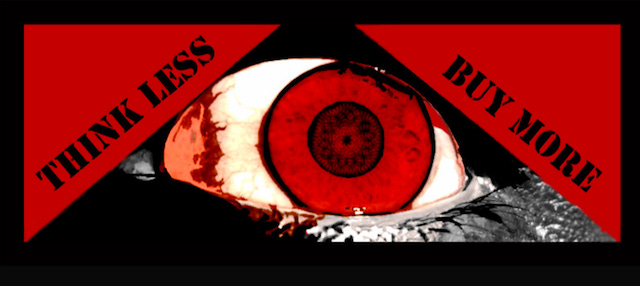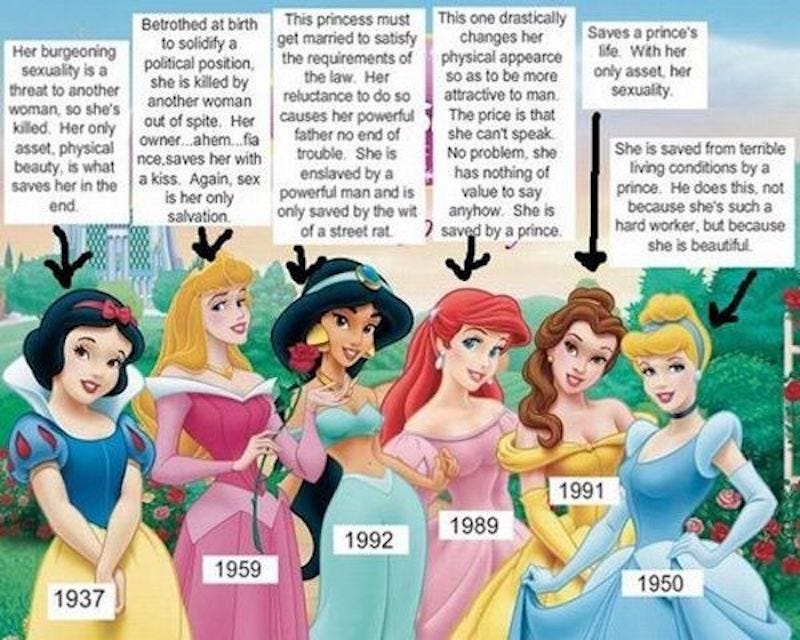“Some poor, phone-less fool is probably sitting next to a waterfall somewhere totally unaware of how angry and scared he’s supposed to be.” (Duncan Trussell)
When a law enforcement officer of any kind is accused of misconduct, they are investigated by (wait for it) other cops. “Internal Affairs,” they might call it.
When a medical/scientific professional (backed by corporate funding) claims to have made a discovery or advance, their work is investigated by (wait for it) other doctors and/or scientists (also backed by corporate funding). “Peer-reviewed,” they call it.
We dwell in a time in which the majority of humans trust powerful organizations to monitor themselves — in a trustworthy manner — on life-and-death issues.
I couldn’t find more recent numbers, so I’m open to any help with this. But, for now, here’s what I discovered: As of 2016, more than 300 police dramas and more than 100 medical dramas have aired on U.S. networks, cable, and syndicated television.
This admittedly incomplete list doesn’t count the last six years’ worth of programs and the recent introduction of the streaming series. It also does not factor in comedies, cartoons, news specials, etc.
Yes, from a very young age, the screen-addicted masses are reared on a steady supply of propaganda.
Translation: Pop culture, social media, and the full range of corporate news sources are very, very useful delivery systems for indoctrination, encouraging conformity, and keeping existing paradigms strong.
Sure, there has also been no shortage of “love” stories imposed upon us by movies, TV, and the internet. On the surface, this may appear to effectively counter my point above. But, look closer and ask yourself how these romantic tales are trying to condition us.
Rather than inspire us to recognize the commitment and hard work it requires to sustain a relationship, they’ve got us swooning over fairy tales about “once upon a time” and “love at first sight.”
Instead of acknowledging a nearly 50 percent divorce rate for first marriages (the number jumps up dramatically for the second, third, etc.), we’re taught to blindly trust in “soul mates” and “happily ever after.”
Inevitably, when reality shoots down these fables, we’re left to feel inferior. Everyone else has figured it out. Therefore, we must be missing something. If only I was thinner or smarter or cooler or sexier or famous or more up-to-date on all the latest celebrity gossip and sporting events. The qualifications list is endless and it’s constantly updated.
That’s one of the methods by which we become loyal consumers. Fad diets, exercise trends, make-up, clothes, social media notoriety, and so on — we spend, spend, spend to chase the dreams we’ve been sold since childhood.
Again: Pop culture, social media, and the full range of corporate news sources are very, very useful delivery systems for indoctrination, encouraging conformity, and keeping existing paradigms strong.
Part babysitter, part opinion-giver, and part cult leader, the Unholy Trinity of TVs, computers, and phones have come to fully dominate our lives. We learn what to eat, how to dress, what to say, and how to think from those glowing screens. The payoff for all this spectatorship is a lifestyle based on imitation, competition, materialism, submission, and self-delusion.
Our devices keep us inactive while our biology desires movement. Our devices sell us junk food while our bodies crave nutrients. Our devices train us to be obedient while our minds yearn for freedom. Our devices teach conformity while our souls demand individuality.
With a nod to Situationism, I’d say it’s time to reinvent everyday life — steal it back from corporate propagandists and reintroduce the joy of living. Stop settling for less pain and start demanding more pleasure. Today’s rebels can provoke dramatic changes simply by refusing to submit to the societal formula they’re presented with.
We know how we feel. No longer should we allow Hollywood, YouTube, the government, social media, or Corporate America to define our needs and desires.
Sometimes, all it takes is thoughtful introspection to liberate oneself from the seductive, profit-motivated web and move into the realm of freethinking and individuality.
Breaking away from the omnipresent, primitive corporate message of “work, consume, and obey authority without question” can be this generation’s way of challenging — and smashing — the status quo to create a society in which industrial pirates, murderous politicians, and vacuous celebrities are no longer the ideal we strive for.
Deep down, we already know how we feel. It’s time to live it.








A good message and yeah agree. Turn away from all those screens - not just ongoing propaganda and programming, but entrance into the matrix where they hope you'll stay, where 'reality' is presented rather than you - as yourself, in the world - might otherwise experience it directly. Nice. Thanks, Mickey.
Maybe you’ve also found, as I have, that the most deeply interesting people are those who have rejected screens. They don’t know trends in clothing, language, or ideas. And they are very cool for all that.